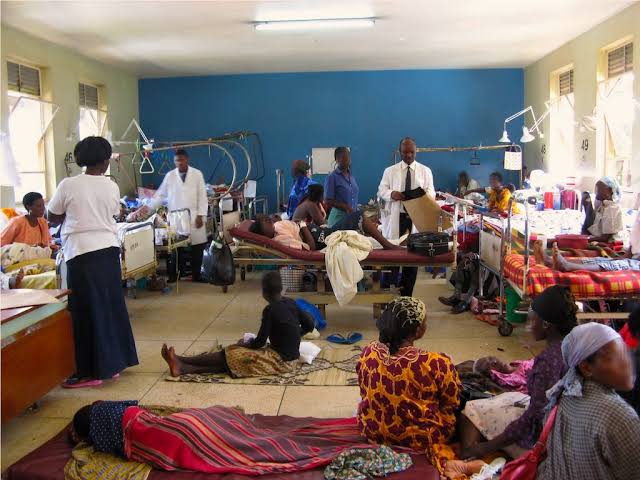Africa
Health Crisis: Rural Communities Struggle for Basic Healthcare -By Ibrahim Arafat Abiodun
To address these challenges, there is a need for urgent investment in Nigeria’s healthcare system. This includes increasing funding, training and recruiting more healthcare professionals, and improving infrastructure. Additionally, efforts to reduce corruption and increase transparency are essential to ensuring that resources are used effectively.

Nigeria’s healthcare system is facing significant challenges, particularly in rural areas. Many medical facilities lack basic equipment, expensive medical bill, incompetent staff, and lack of essential medications, making it difficult for people to access quality healthcare.
In rural communities, residents often have to travel long distances to reach a functional healthcare facility. Even when they arrive, they may find that the facility lacks the necessary equipment or staff to provide adequate care. This can lead to unnecessary deaths.
Speaking with a resident in the Ajegunle area of Lagos, 44-year-old Chinedu Okoro recounted the pain of losing his aunt in a remote village in Anambra State. “She was very sick, and we had to take her on a motorcycle for two hours to the nearest clinic. When we got there, the nurse said the doctor had not shown up in days, and they had no drugs. She died in that waiting room,” he said with visible grief.
Some of the key challenges facing Nigeria’s healthcare system includes, Inadequate funding, The government’s allocation to the health sector is insufficient, leading to a lack of resources and infrastructure, Shortage of skilled workers because many skilled healthcare professionals have left the country in search of better opportunities, leaving a gap in the workforce, also Poor infrastructure, Many healthcare facilities lack basic infrastructure, such as electricity, water, and sanitation which will affect the effectiveness of their function. Corruption is another significant challenge facing Nigeria’s healthcare system, with many cases of mismanagement and embezzlement of funds.
Healthcare workers also share this frustration. At a government hospital in Ikeja, a nurse who asked to remain anonymous said, “We are constantly overwhelmed. Most of our equipment is outdated or broken. Sometimes we can’t even treat simple cases properly.”
To address these challenges, there is a need for urgent investment in Nigeria’s healthcare system. This includes increasing funding, training and recruiting more healthcare professionals, and improving infrastructure. Additionally, efforts to reduce corruption and increase transparency are essential to ensuring that resources are used effectively.
For many Nigerians, especially in rural areas, these improvements cannot come soon enough. As Chinedu Okoro put it, “We are not asking for miracles. We just want to live.”
Ibrahim Arafat Abiodun is a student of Journalism at the National Broadcast Academy, Ikeja, Lagos state

























